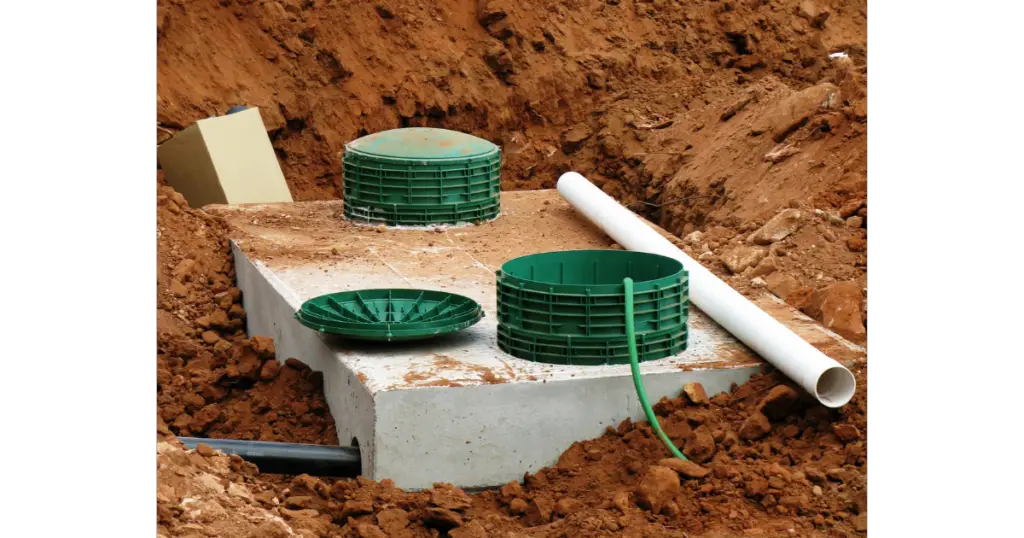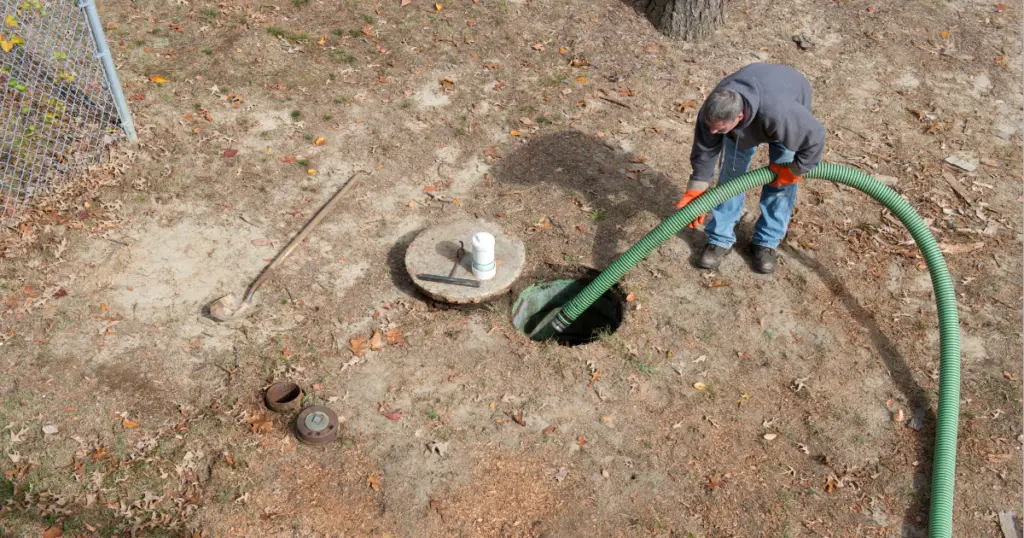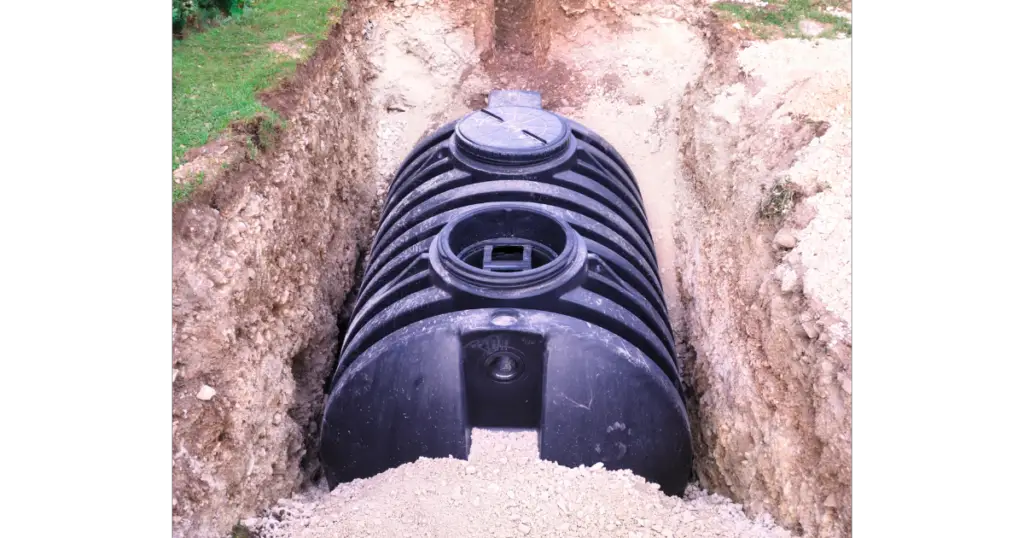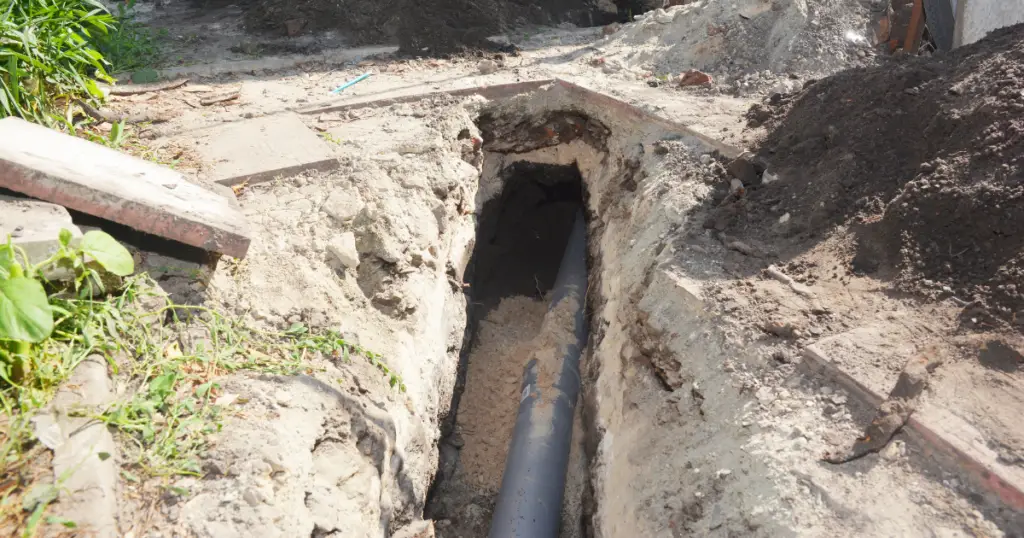Septic tanks are a critical component of many residential and commercial properties. They act as a repository for all the waste leaving your home, breaking down solids into liquid before they’re released underground around ten feet from your property. Septic systems are the perfect combination of practicality and durability, available in plastic or concrete materials to ensure your system runs optimally.
Septic tank backups can be a homeowner’s nightmare but are preventable. A clogged drain and other problems can cause wastewater to enter your home if your septic tank isn’t properly maintained. While the lifespan of these systems is normally 20-40 years, improper maintenance will reduce their effectiveness and lead to added costs in repairs or even replacements.

How Does Septic Tank Work?
Septic tanks are designed to capture and store wastewater that is produced from the household. These tanks allow solids to settle out, creating a layer of sludge at the bottom. The liquid portion of the wastewater passes through an outlet pipe and is slowly released into a drain field or leach field. To simplify it, the process begins with your toilet, sink, and tub sending waste to an external tank. This tank serves as a bacterial chamber that breaks down solids before they reach the disposal field, where liquids are absorbed into the soil. If there is any obstruction present in this system, it can result in septic backup issues.
This process is an efficient way of storing hazardous waste securely stored and releasing treated water. Maintaining this system only requires you to pump out the refuse every couple of years, guaranteeing a smooth running operation.
What Causes Septic Tanks To Back Up?
A lack of maintenance often causes a backed-up septic tank. When solids accumulate in the tank, they prevent wastewater from exiting and cause a backup in your plumbing system. There are many potential causes for this, and we will discuss a few of them below.
Clogs caused by foreign objects – Non-flushable solids are a major cause of clogged pipes. To avoid this, only flush waste and toilet paper down the drain. Items such as facial tissues, feminine hygiene products, paper towels, and baby wipes should never be disposed of in toilets — they can damage the septic system. If you’re unsure if an item is suitable to flush, look for ‘septic safe’ on its packaging; anything else should go straight into the trash bin!

Tree root – If you have trees near your septic tank or drain field, their roots can grow into the pipes and create an obstruction. This will inhibit the flow of wastewater and cause a backup.
Flooding – Heavy rainfall can saturate the area around your septic system and prevent it from draining properly. This is especially true if you live in an area prone to flooding.
Increased Water Use – When hosting visitors or experiencing a sudden spike in water consumption, it’s essential to be aware of the size of your tank to prevent an overflow. Accidentally overfilling is likely and could create an unpleasant septic backup if you’re unaware. Knowing the dimensions of your tank will help ensure this never happens.
Garbage Disposal Problems- The waste processed by garbage disposals can be too much for your septic tank to handle, leading to clogged pipes. It’s best practice only to use minimal food waste in the disposal and let larger items go into the trash.
Grease and Fat – Don’t pour grease down the drain. Even if you rinse your pans, hot cooking oil or grease can solidify once they cool. This can build up over time and create a blockage.
If you’ve ever encountered a septic tank backup, it is essential to contact an experienced professional as soon as possible. This could be a sign of a deeper issue within your system, and should not go ignored.
What are the signs of blockage in my septic system?
Any blockage in your septic system is a warning sign that something is wrong, and if not addressed quickly, it can lead to bigger issues. Common signs of obstruction include:
Odor Around Drains
Do not disregard a suspicious and unpleasant stench coming from your home’s drains. It won’t be the aroma of spoiled food; it will smell like sewage.
Slow draining
This is a sign that something is clogging the pipe, preventing wastewater from passing through.
Gurgling noises
If you can hear strange gurgling sounds coming from your toilets or drains, it could be due to the restricted water flow into the septic tank.
Muddy patches in the yard
If you notice muddy patches near the septic tank, it could indicate water escaping from your system.
Sewage Backup
If you see raw sewage in areas it shouldn’t be, like your sinks or toilets, this is a sign that the septic tank is full and needs emptying.
Septic tank systems are complex, and it’s important to maintain them regularly. Investing in professional maintenance services every couple of years is a great way to guarantee that your system runs smoothly. If you ever experience any of the signs mentioned above, call an experienced septic professional immediately.
How can I prevent my septic tank from backing up?
Taking preventive measures can help ensure your septic tank runs as smoothly and efficiently as possible. Here are some simple steps you can take to keep it running optimally:
- Regular Septic Tank Pumping – Have your tank pumped out every two to three years, depending on how many people live in your home. This will help keep it from becoming overloaded with waste and solids.
- Use Septic-Safe Products – When choosing products that go down the drain, such as detergents and cleaning agents, make sure they are labeled ‘septic safe’. Do not use antibacterial soaps as they can harm your septic system.
- Limit Water Usage – Try to reduce the amount of water used in the home and encourage your family members to take shorter showers. This will help keep your system from becoming overloaded.
- Avoid flushing any solids – Dispose of any feminine hygiene products, paper towels, food scraps, plastic wrappers or diapers in the garbage – not down the drain. Doing this can prevent pipes from becoming clogged and backed up.
To guarantee the best performance from your septic system, consider these simple tips. Make sure to adhere to them and always be aware of the size of your tank for optimal functioning. Follow this advice and you’ll have a septic system running like clockwork!

What are the dangers of a backed-up septic tank?
When a septic tank backs up, it can cause serious problems. Not only is there potential damage to your home from any flooding resulting from a backed-up system, but raw sewage can spread dangerous bacteria and viruses into your living space. This poses serious health risks for you, your family, and anyone else who may come in contact with the contaminated water. Additionally, a backed-up system can lead to serious soil contamination from untreated wastewater and solids leaking out of the tank.
For these reasons, it’s important to immediately address any signs of blockage in your septic tank. Call an experienced professional if you see or smell anything that seems off, as
Can I fix my septic tank?
In most cases, it’s best to leave repairs and maintenance of your septic tank to a professional. Unless you are experienced with these systems and have the right tools and knowledge, trying to fix your tank yourself is not a good idea. The best way to fix a septic tank is with proper maintenance. Ensure you get your system pumped every 3 to 5 years, more if you have a large household. Regular pumping will hopefully avoid a large backhoe tearing up your lawn and replacing a broken septic tank.
Professional Help
If you’re experiencing any septic tank issues, don’t wait to call a professional. A certified specialist can accurately assess the situation and offer an extended-lasting solution to get your system back up and running as soon as possible. Timely action is key in septic services; calling too late could mean more expensive repairs or damage to other components!
[/et_pb_text][/et_pb_column][/et_pb_row][/et_pb_section]



